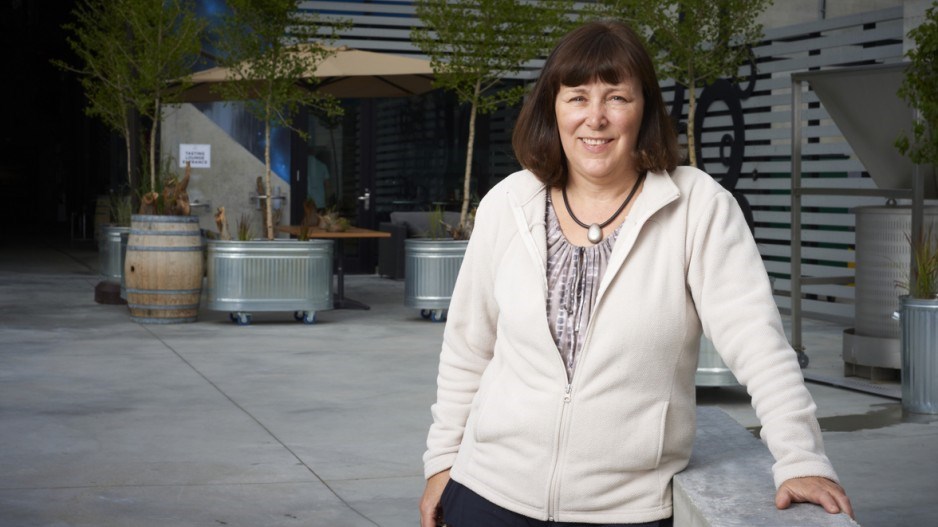The number of B.C. wine brands will be at an all-time high this harvest season thanks to the emergence of a controversial new business sector that’s essentially a U-vin operation for commercial-sized clients.
Called custom crush, the practice involves grape owners contracting a winery to produce wine under the grape owners’ brand that the grape owners then market independently.
Alan Dickinson launched Alto Wine Group in 2009 and pioneered the business niche of making small batches of wine for grape owners to sell commercially.
Christine Coletta and husband Steve Lornie launched Okanagan Crush Pad (OCP) soon after. Production has jumped more than 50% in the past two years to capacity, or about 32,000 cases. Last year, they made about 14,000 cases for themselves to sell under brands such as Haywire and Bartier Scholefield. They made the remaining 18,000 cases for clients who branded their wine as Harper’s Trail, Sage Hills and CC Jentsch Cellars.
Colletta also helps market clients’ wine.
“Other wineries [such as Road 13 Vineyards] are now looking to augment their own production by offering their own custom crush services,” Coletta told BIV.
Some owners of small wineries begrudge that custom crush customers, or “virtual wineries,” have not had to invest capital in land, equipment or a winery facility.
“Small winery owners have put their money up front and now we’re faced with every Tom, Dick and Harry who wants to sell their wine in the same market,” said Richard Roskell, who owns the 1,200-case Marichel Vineyards on the Naramata Bench and sells his products at stores such as Everything Wine.
The upshot is that winery owners, such as Roskell, could also get in on the action by selling custom-crush services.
Coletta argued that her business sector helps stabilize the B.C. wine industry.
“A lot of wineries in the Okanagan make less than $500,000 in retail sales and a lot of them are not going to be successful,” she said.
“Our business model helps people get their head around being a winery owner and how to make wine. When they leave here, they have an understanding of the business. They have cash flow because they’ve made product, and they’re getting sound advice on all aspects of their business. They are better set for success than someone who is left on their own to flounder.”
Indeed, some of Coletta’s clients, including the owners of Covert Farms Family Estate Winery, Bella Wines and Moraine Winery, have since bought their own land and equipment.
Bella Wines owner Jay Drysdale completed a degree in winemaking and told BIV that he was keen to be more hands-on with his wine-making.
At OCP, clients are mentored but not allowed to make the wine themselves.
Drysdale has temporarily found a Naramata Bench winery owner who lets him use his facility to produce about 800 cases of sparkling wine. Next year, Drysdale will use his own equipment at his new four-acre Naramata Bench winery site. He also plans to plant grapes on much of his site.
“I’m doing the labour myself so there’s a cost saving from that,” Drysdale said. “OCP is a good first step “but they’re not cheap.”




